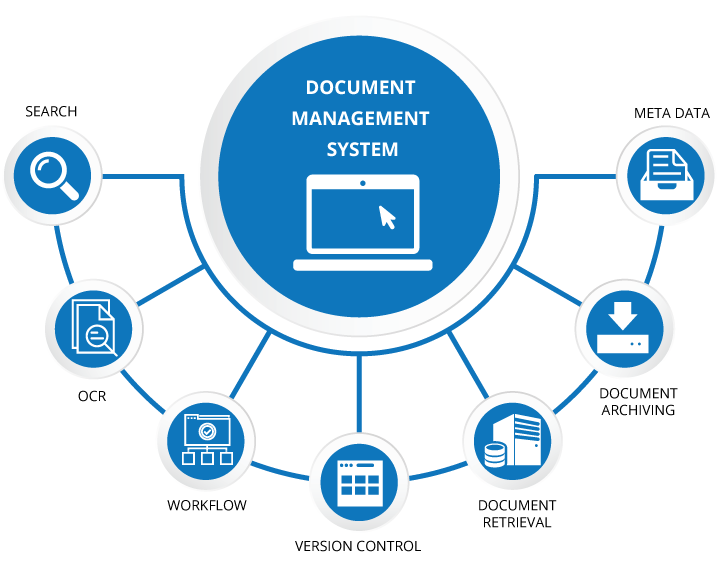You’ve probably read dozens of articles, or headlines, that speak to the number of hours that the typical worker wastes on a given day. Unfortunately, and we all know it; those articles are accurate. In fact, according to this fun infographic, the average worker has admitted to wasting just over three hours per day at work. That’s a pretty scary figure when you think of it. Consider that when you do the math, three hours of wasted hours per day, five days per week, multiplied by the average number of working days in a month is 330 hours.
Now, let’s consider the above to be an intentional waste. So what about the waste that could be better controlled? For example, how much time during the day does a typical employee spend searching for an important document, whether it be filed away somewhere in a drawer, or saved somewhere on their computer? Let’s say that on average, a worker loses 30 minutes per day in productivity because they can’t find that document. If we do the math here, 30 minutes, five days per week, using those same number of working days per month, means 55 additional hours wasted per month.
What if you could solve for part of this problem, or at least make it easier to find a document so that employees can get back that 30 minutes per day? And, just what if by solving this document management problem, you could also cut down on that other number? Because, when you think about it, if you get frustrated trying to find something, the longer it takes, the more distracted you get. So, just by solving one problem, you can probably cut out another problem.
The right document management system can help you do just that.
What is a document management system?
A document management system (DMS) leverages your computer, and often the cloud, to store, manage, and track documents. And while a DMS is intended for electronic documents, most DMS tools on the market came with a scanning capability so that older, paper-based documents can be turned into electronic records.
Many businesses today are turning to a DMS to help them become greener (less paper means good things for our environment), become more efficient (less time lost looking for that elusive piece of paper), and for version control. On the point of version control alone, think of the problems that can arise when a salesperson is not using the latest version of a sales deck.
Or worse, an attorney is not using the most recent red-lined version of a critical mergers and acquisitions document. A failure to maintain version control can cost your organization countless dollars every year, not to mention the additional wasted time that now needs to go in correcting whatever situation was created by the use of outdated or erroneous data.
How to find the right document system for your needs
If your business is ready to gain efficiency and wants to become paper-free, it is time to seek out a document management system. In most cases, companies can best benefit from a system that combines the ability to convert paper documents into electronic files, as well as the ability to manage data that are in an electronic format. With that understanding in the back of your mind, consider these points:
- Do you want your system hosted on-premise, or is a cloud-based software as a service (SaaS) system more in line with your needs? When purchasing an on-premise solution, you will need to pay for hardware, licensing fees, as well as ongoing maintenance. For a cloud-based solution, you will pay for a monthly hosting fee, and on-site installation, but support is all taken care of behind the scenes, so you do not have to take on that cost.
- What features are you looking for? What tools does your DMS need to be compatible with? Does the system support HIPAA (Health Insurance Portability and Accountability Act), or Sarbanes-Oxley? What certifications does the system have?
- How is the DMS secured? How can you be assured that people who shouldn’t have access to your information, do not?
- Can you access the DMS remotely or via a mobile device?
- How is the software installed?
- What do ongoing maintenance and support look like?
To ensure your DMS provides the efficiency and streamlining that your business needs, it is crucial to be very thoughtful on the needs you have for your business now, as well as needs that you might anticipate as your company begins to grow.
FileCenter is a Nimble, Low-Cost, Easy-to-Use Document Management System:
FileCenter, previously known as Lucion Technologies, has been in the DMS business since 2003 and started under the original name of Authoritative.Net. The founders got into the DMS business as they were attorneys who were frustrated before the plethora of papers floating around their offices, and the amount of time they wasted trying to find the right document when it was needed.
Now, FileCenter’s PaperPort Software solution is helping customers across the world to save paper, streamline processes, and gain efficiency in the office. When you visit this site, you’ll see that clients can reduce the amount of time they spend searching for documents, significantly. The FileCenter DMS offers the following benefits:
- A sensible and logical filing system
- Automatic scanning to turn paper into electronic records
- Integration with Windows desktop applications
- Optical character recognition (OCR) to create searchable PDFs
- Ability to save files to any drive you want
- An intuitive and easy-to-learn interface
Not only do FileCenter clients benefit from all of the above, but they also get the benefit of a low and affordable price point, along with superior customer service through online technical support, user guides, webinars, and a detailed knowledge base. Further, the ability to reach a real person is just a phone call away or accessible through a quick online chat session.
FileCenter combines easy scanning as well as file organization with dynamic PDF development and editing. Click here to review customer testimonials and learn more.
Is a freelance tech writer based in the East Continent, is quite fascinated by modern-day gadgets, smartphones, and all the hype and buzz about modern technology on the Internet. Besides this a part-time photographer and love to travel and explore. Follow me on. Twitter, Facebook Or Simply Contact Here. Or Email: [email protected]

![OVO Cool Math Games Apk for Android [Download 2019]. OVO Cool Math Games for Android Apk download](https://axeetech.com/wp-content/uploads/2019/10/OVO-CoolMath-Games-for-Android.jpg)
![707 Mystic Messenger Email Guide. [All Codes] Mystic Messenger Email Guide](https://axeetech.com/wp-content/uploads/2020/06/mystic-messenger-Email-Guide-Lists.jpg)



